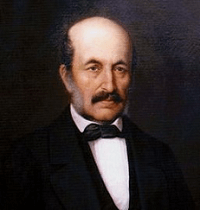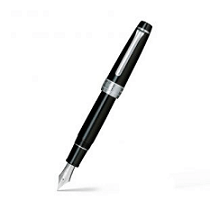Who Invented Pen
Petrache Poenaru is credited for the invention of pen, which is known to be mightier than the sword. He was the first to develop the fountain pen in 1827.Petrache was a Romanian engineer, inventor, and mathematician. Petrache and the Invention of the Fountain Pen
Petrache was born in 1799 in Wallachia. He was into many roles of different departments, which include the education system and politics. Moreover, he was the founder of Botanical gardens and the National Museum. He wanted to design an efficient way to take notes without dipping the pen into the inkpot. Hence invented the first fountain pen while he was a student in Paris. Petrache was awarded the patent for the design of his fountain pen in 1827. Petrache's fountain pen consists of an ink barrel made up of the swan's quill. Petrache's fountain pen had several shortcomings that wouldsmudge the paper, or no ink would come out. Hence some developments were made to avoid this. Still, the barrel had to be refilled frequently. Eventually, the invention of the ballpoint pen took place, which changed people's lives as people could comfortably write and transport the pens with ease. History of PensThe Reed PenReed pen is the creation of Egyptians dates back to 3000 BC. These pens used hollow bamboos filled with writing liquid which was often squeezed for the ink to flow. The QuillThe quill pens were made in the 6th century AD. These were made up from the feathers of the birds like swans, geese, and turkeys. Although quills served the purpose of writing, these had to be dipped in ink to fill the shaft of a feather. Another problem with the quill was that it had to be frequently sharpened with a knife for writing properly. The Steel Point PenThe steel point pens were mass-produced in 1822 by John Mitchell. These were more efficient than the quills as using steel made it sturdier. The Fountain PenThe fountain pen, which most closely resembles the pens we use today, was invented in 1827. Petrache Poenaru patented it. The fountain pen worked without dipping it in the inkpot as it had an ink barrel. Although it was one of the first pens to be designed,it had some limitations. The design of the fountain pen was such that sometimes the ink extra ink would spill out, and sometimes the ink would get clogged. Later, the three-channel ink feed fountain pen was invented in 1884. This invention is credited to Lewis Edson Waterman. The pen invented by him gave the advantage of the smooth and effortless writing. Although a great invention, the fountain pen went through many changes over the years. These include the changes in shape, mechanism, and material of the pen body. The Ballpoint PenThe popularly used ballpoint pen was invented in 1943. László Bíró designed the first ballpoint pen with the quick-drying ink and a rolling ball at the tip. The rolling ball at the tip enabled the uniform distribution of the ink and also made writing feasible on other materials like wood. László Bíró and his chemist brother patented the ballpoint pen. Later they sold the patent to Marcel Bich for the mass production of the ballpoint pens. The ballpoint pens revolutionized writing as they were more efficient and durable to use. Impact of Pen on societyPens have helped us pass on the information from one generation to the other. Pens help to write and communicate effectively. Pens have helped people in creating, sharing, and learning. In ancient times there were fewer means of telecommunication. The pen has helped people stay in touch with each other and share different ideas irrespective of their locations. Without the invention of pens, no one would have ever known about the works of the greatest personalities like Leonardo da Vinci, Newton, Galileo, and many others. The pen wasa pioneer in eradicating many social evils and revolutions that have made World a better place to live in. Although the use of the pen has reduced with the introduction of digitalization, the pen will always remain one of the most significant inventions of humankind.
Next TopicWho Invented YouTube
|
 For Videos Join Our Youtube Channel: Join Now
For Videos Join Our Youtube Channel: Join Now
Feedback
- Send your Feedback to [email protected]
Help Others, Please Share










